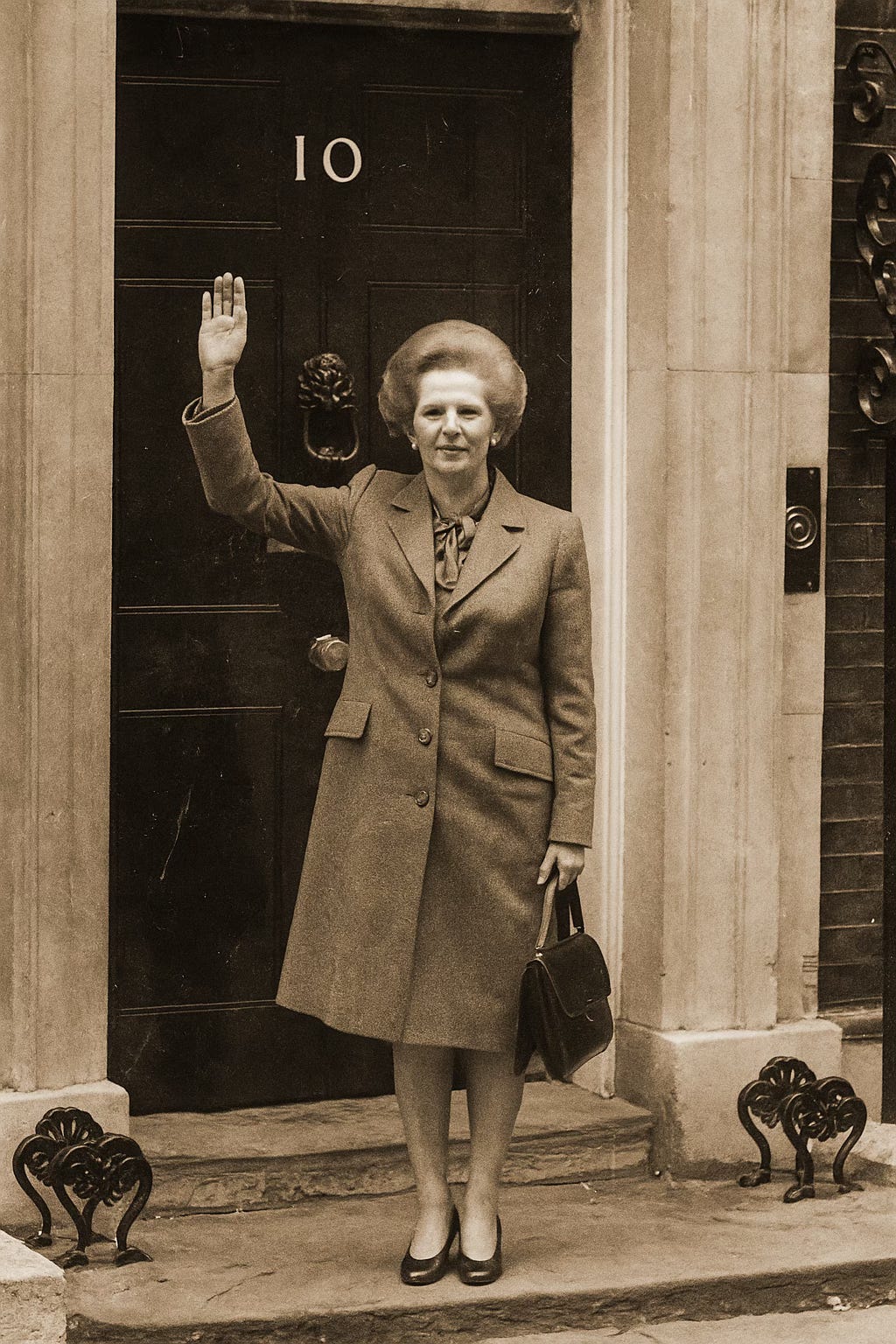🧵 The Political History of Inequality in Britain: 1970–2025
From postwar fairness to neoliberal fracture: how Thatcher’s revolution reshaped the UK’s economic divide—and why it never went into reverse.
Since the 1970s, inequality in Britain has steadily increased — but not by accident. This widening gap between rich and poor is the cumulative result of policy choices made by successive governments, not some natural or inevitable economic trend.
Here’s how successive governments shaped — and sustained — the divide.
The Gini coefficient tracks income inequality. It surged under Thatcher — and never returned to pre-1979 levels.
📅 1970s: The Precursor (Heath, Wilson, Callaghan – Con/Lab)
Britain in the 1970s was a far more equal society. Strong unions, high top tax rates, and a robust welfare state kept inequality low. The Gini coefficient hovered around 0.25, indicating relatively balanced income distribution.
But the post-war consensus was already beginning to fray — inflation, industrial unrest, and economic stagnation set the stage for a dramatic shift.
🔨 1979–1990: Thatcher’s Revolution (Conservative)
Margaret Thatcher reshaped Britain’s economy: privatisation, deregulation, union-busting, and sharp cuts to top income tax rates. The Gini coefficient spiked to ~0.34 in just a few years.
This was the single most transformative period for inequality in modern UK history — and it left a lasting legacy. Wealth began to concentrate at the top, while public housing was sold off and benefits were scaled back.
🧱 1990–1997: Major Continues the Model (Conservative)
John Major largely continued Thatcherite policies. Regressive reforms like the Council Tax replaced the poll tax, and inequality remained high.
🧧 1997–2010: New Labour’s Balancing Act (Blair/Brown – Labour)
Tony Blair and Gordon Brown inherited a deeply unequal society. They didn’t challenge the neoliberal consensus — but they tried to blunt its sharpest edges.
Introduced the minimum wage
Expanded tax credits
Reduced child and pensioner poverty
But wealth inequality was left untouched. The rich got richer — just more quietly.
✂️ 2010–2016: Austerity Britain (Cameron – Con/Coalition)
David Cameron’s government slashed public spending, capped benefits, froze public sector pay — all while cutting the top rate of tax from 50% to 45%. The result?
Rising food bank use
Declining real incomes for the poorest
Inequality entrenched
🤷 2016–2019: Brexit and Stagnation (May – Conservative)
Theresa May pledged to tackle “burning injustices” — but made little progress. Brexit dominated the agenda, while economic inequality persisted.
💷 2019–Today: Pandemic, Profits & Poverty (Johnson, Truss, Sunak – Conservative)
Covid exposed and widened Britain’s existing fault lines. The poorest bore the brunt of lockdowns and inflation, while the wealthiest bounced back—buoyed by asset ownership and policy protections.
Despite emergency support, the long-term trajectory remains clear: the Gini coefficient still hovers around 0.36, and the top 1% now hold over 22% of UK wealth.
⚖️ Conclusion: Inequality Is Political
Britain’s inequality crisis isn’t an accident. It’s the result of political choices — by both Labour and Conservative governments — that either deepened or defended the concentration of wealth.
Reversing it will take more than talk. It will take redistributive policies, political will, and an honest reckoning with the choices that got us here.
Like this post?
👉 Follow me on Substack Notes for shorter takes, media fragments, and
off -the - record provocations.
You don’t need the app, and it’s totally free. Just follow me there to stay in the loop.
📬 Or hit subscribe to get An Outsider’s Perspective delivered weekly:
🧭 No Substack account? No problem. Just enter your email to comment — no app or login needed.
PS: And before you clutch your pearls — yes, a follow-up is coming on standard of living, not just inequality.






I was going to write something flippant - that "The Political History of Inequality in Britain: 1970–2025" would be a great title for a piece. But then it's just too depressing to be flippant...